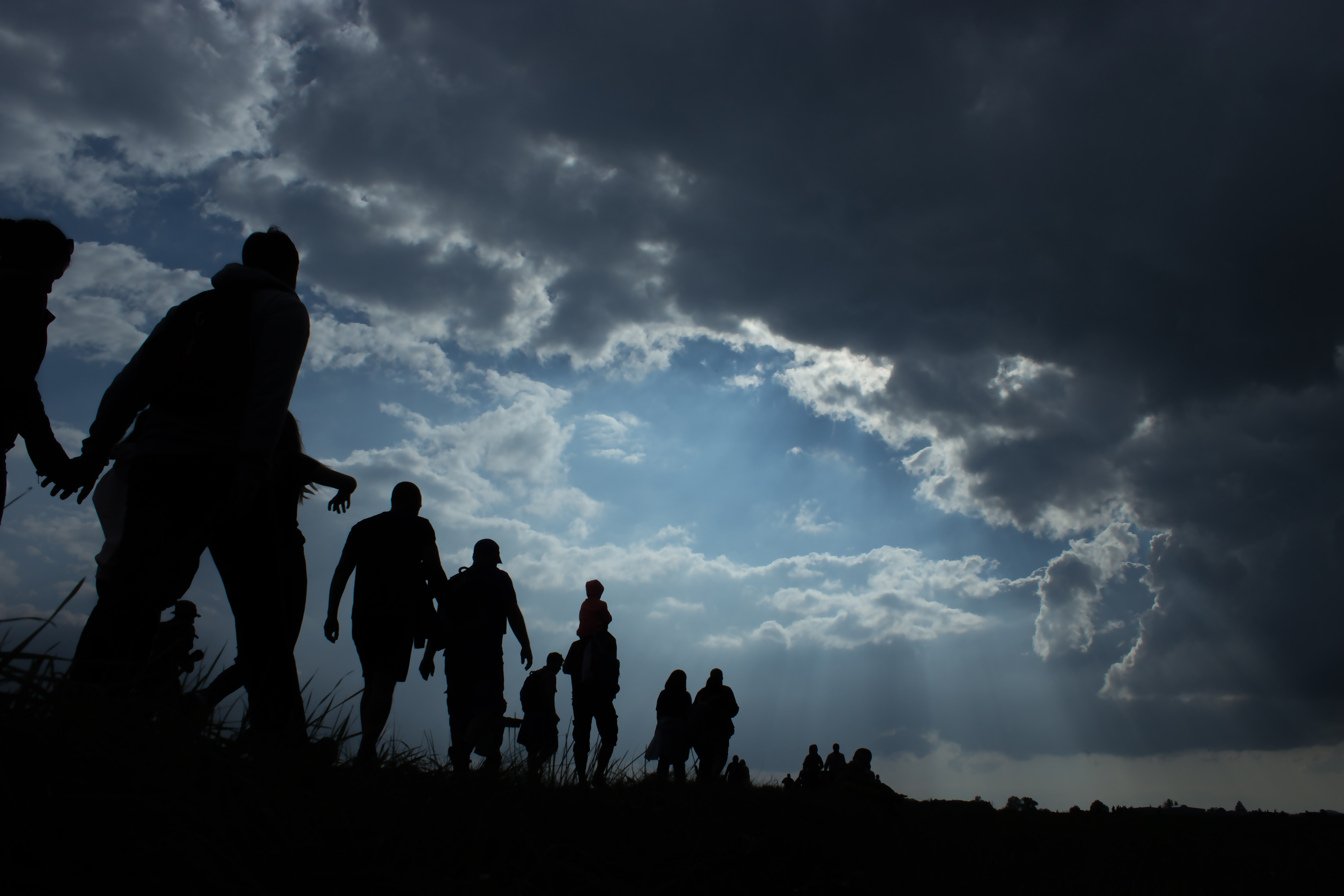Immigration
A call for global unity in managing the migration crisis

Sun rays illuminate people. Immigration of people. Blue sky with dark clouds.
© ShutterstockUnited Nations High Commissioner for Refugees Filippo Grandi asserts that Western countries must implement policies to prevent asylum seekers from undertaking dangerous routes. Experts liken the migration crisis to an albatross around Europe's neck, leading to the rise of political parties staunchly opposed to migrant influxes, consequently fuelling right-wing ideologies across most European nations.
Recent statistics reveal a surge in sea arrivals from North Africa, nearly reaching 150,000 in 2023, while 96,000 migrants aimed to cross the Mediterranean Sea into Europe in 2022. The United Nations Refugee Agency reported that by the end of 2016, almost 5 million refugees and migrants had reached European shores, predominantly from conflict-torn nations like Syria, Iraq, Afghanistan, and others.
Taking Italy as an example, Prime Minister Giorgia Meloni, who assumed office in October 2022, positioned herself as a nationalist. She aimed to restrict unauthorised arrivals from North Africa through stringent immigration laws, intending to limit sea rescue charities and establish migrant reception camps in Albania. Italy proposed two camps in Albania, a non-European Union member, for refugee screening and detention under Italian jurisdiction, although practical details and the approval timeline from Albanian parliament remain uncertain.
The global crisis has displaced over 114 million people due to conflicts, poverty, climate change, and various other factors driving migration. In the Netherlands' November 22nd elections, immigration took centre stage, a persistent issue since the early 2000s. Outgoing Prime Minister Mark Rutte's administration collapsed over heated debates concerning ways to reduce asylum seeker influxes. Far-right leader Geert Wilders won the polls but requires coalition partners to form a government. His victory garnered reactions, including Hungarian Prime Minister Viktor Orban's acknowledgement, labelling it as a harbinger of change.
International Migrants Day on December 18th serves to recognise migrants' contributions while shedding light on the challenges they encounter daily. Conflicts, insecurity, climate change effects, and wars have significantly propelled forced migration. The United Nations reports over 280 million international migrants in 2020, and due to the absence of reliable migration pathways, people continue to undertake perilous journeys, resulting in around 50,000 migrant deaths since 2014.
In the United Kingdom, Prime Minister Rishi Sunak appointed a Minister for Illegal Migration amid concerns over high migration levels, with annual net migration reaching a record 745,000 in 2022. Sunak faces challenges within his Conservative party regarding the handling of asylum seekers, including a plan to send them to Rwanda. The UK Supreme Court ruled against the Rwanda plan, prompting Interior Minister James Cleverly to assert continued efforts to disrupt criminal gangs facilitating dangerous migrations.
Moreover, Poland and the Czech Republic extended temporary border controls with Slovakia to address the influx of migrants using Slovakia as a transit point. Slovakia, a Central European country, has seen a six-fold increase in refugee arrivals this year, primarily from the Middle East and Afghanistan, aiming to reach Western Europe, especially Germany.
According to the International Migration Outlook, Germany received approximately 600,000 new migrants in 2019, comprising immigrants benefiting from free mobility, labor migrants, and family members. Conflict escalation in the Middle East, Sudan, Yemen, and other regions indicates a prolonged influx of migrants into Europe, viewed as a safe haven.
In light of these escalating challenges and the persistent migration crisis, it's evident that a comprehensive and collaborative approach is imperative. Effective global cooperation is needed to address the root causes of displacement, including conflicts, poverty, climate change, and insecurity. While individual nations grapple with internal policies and political shifts, the larger narrative requires a united effort in fostering stability and creating safe avenues for migration.
